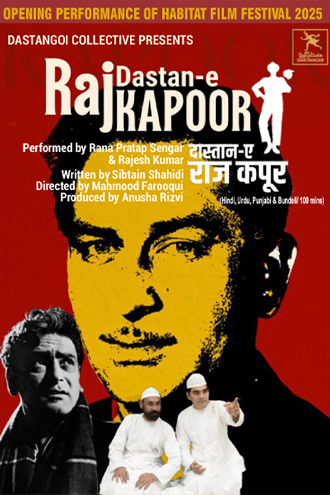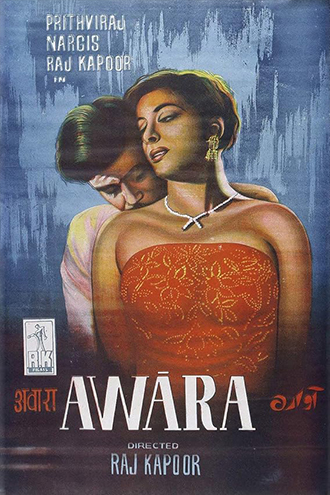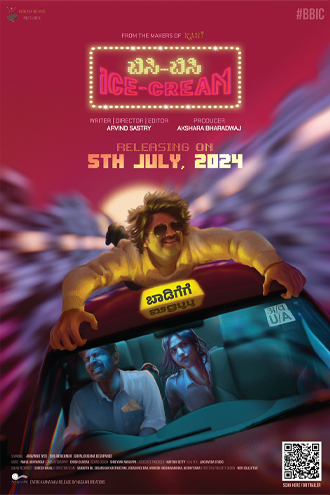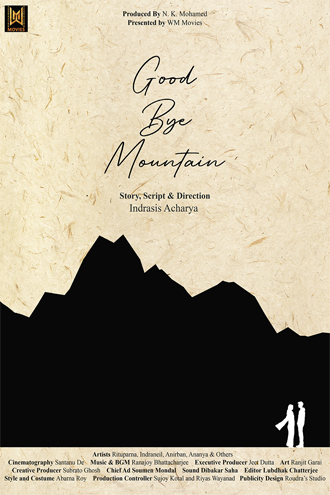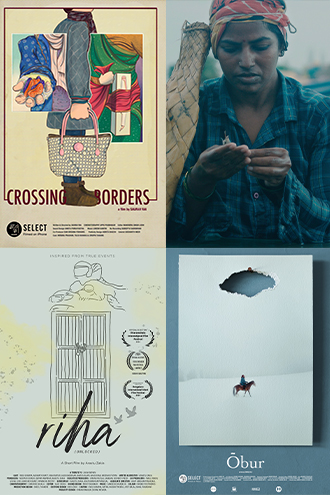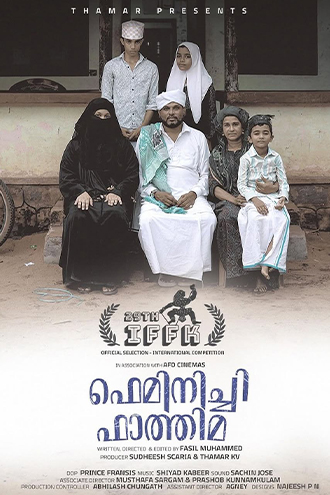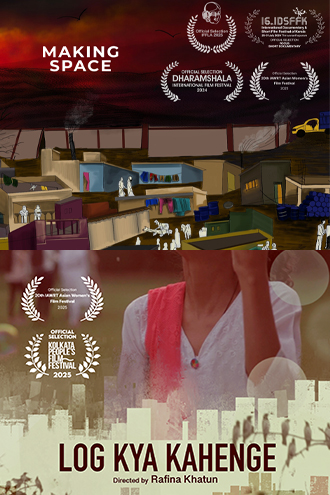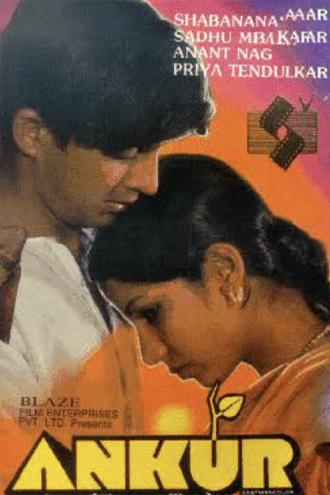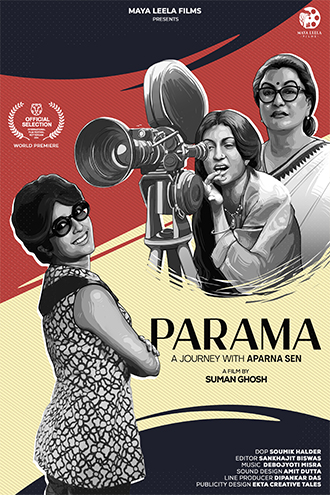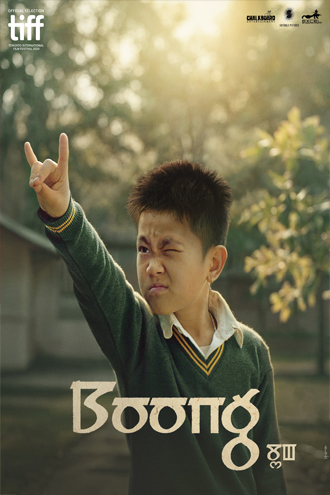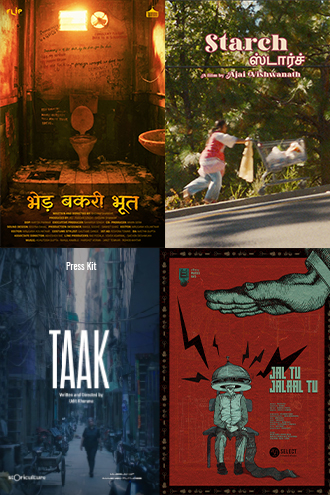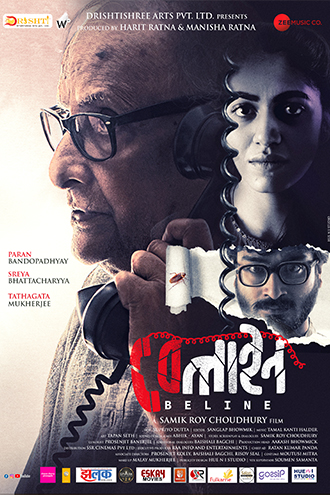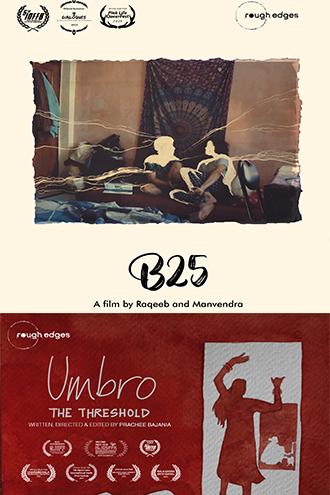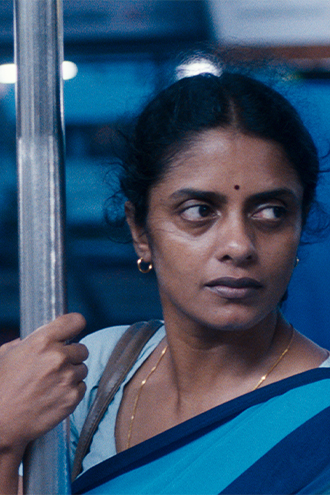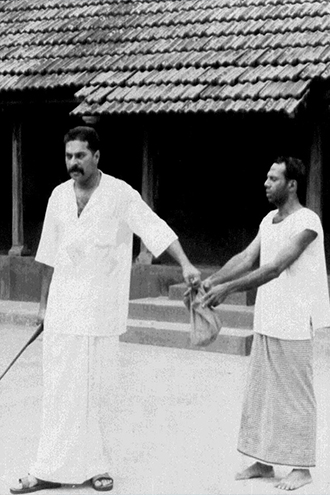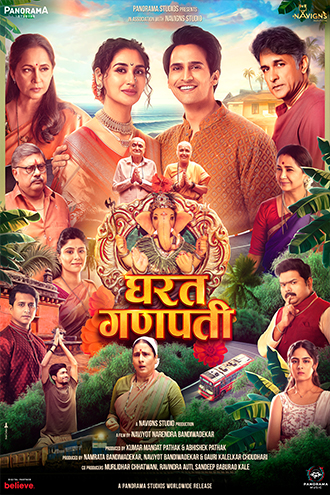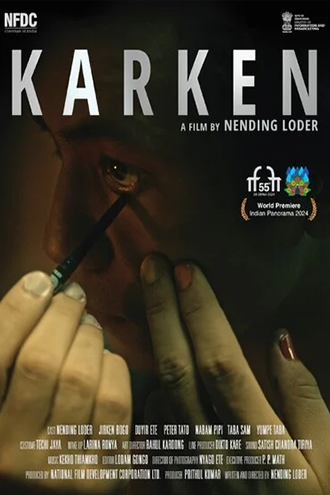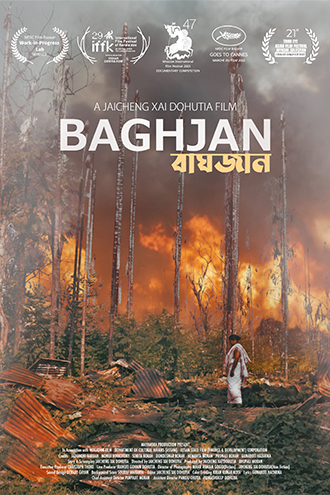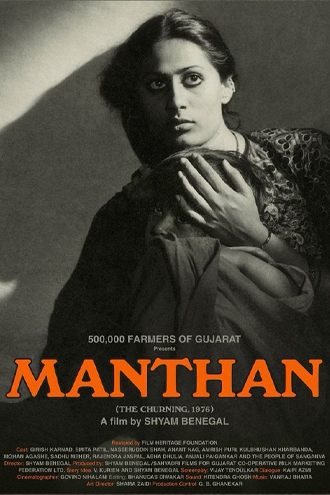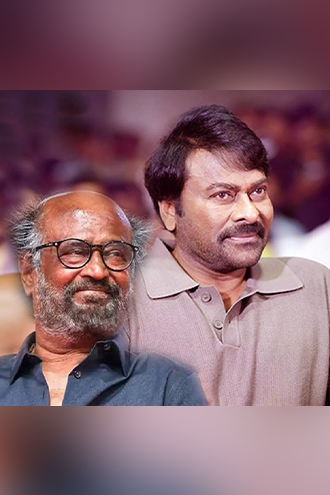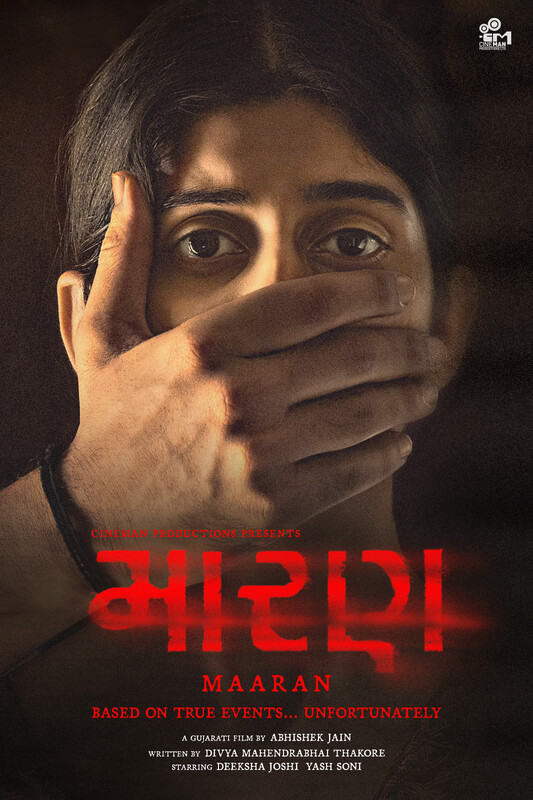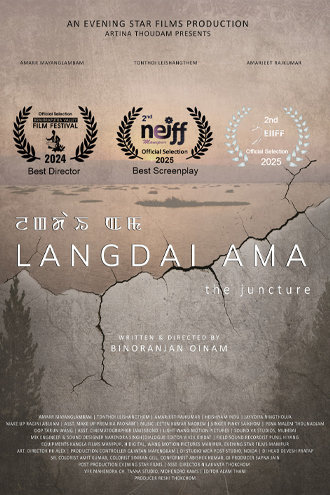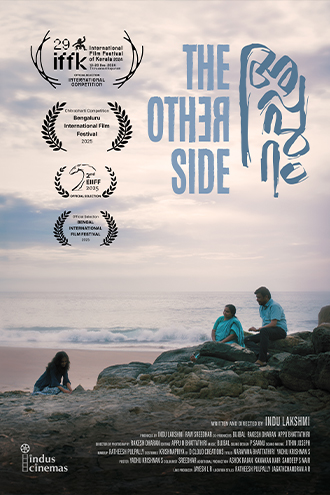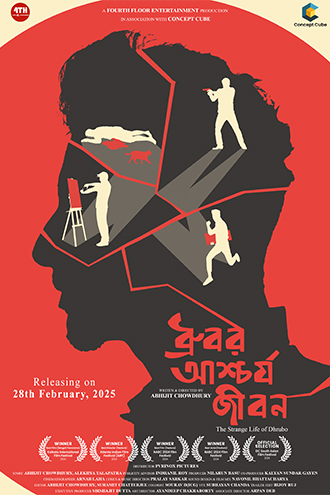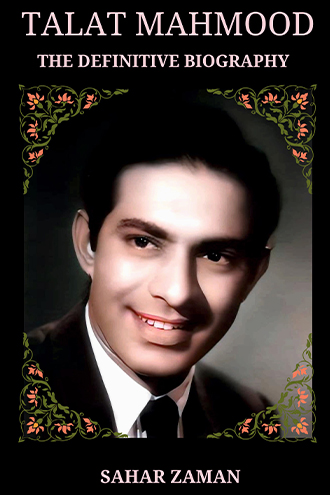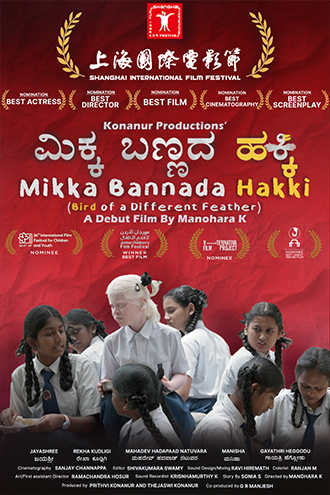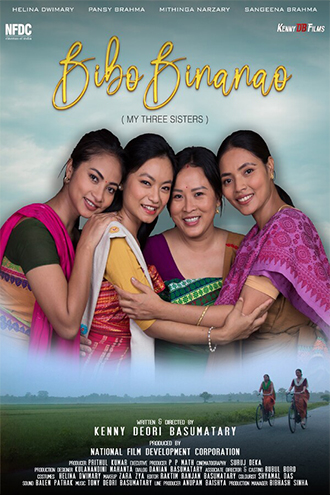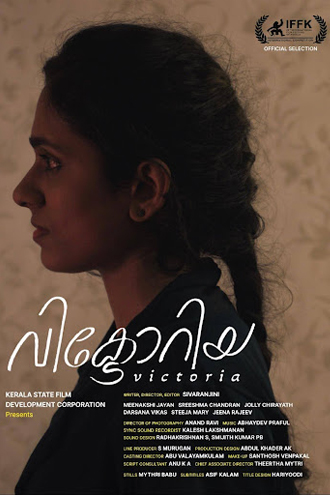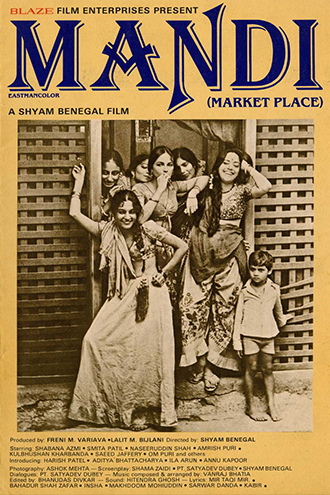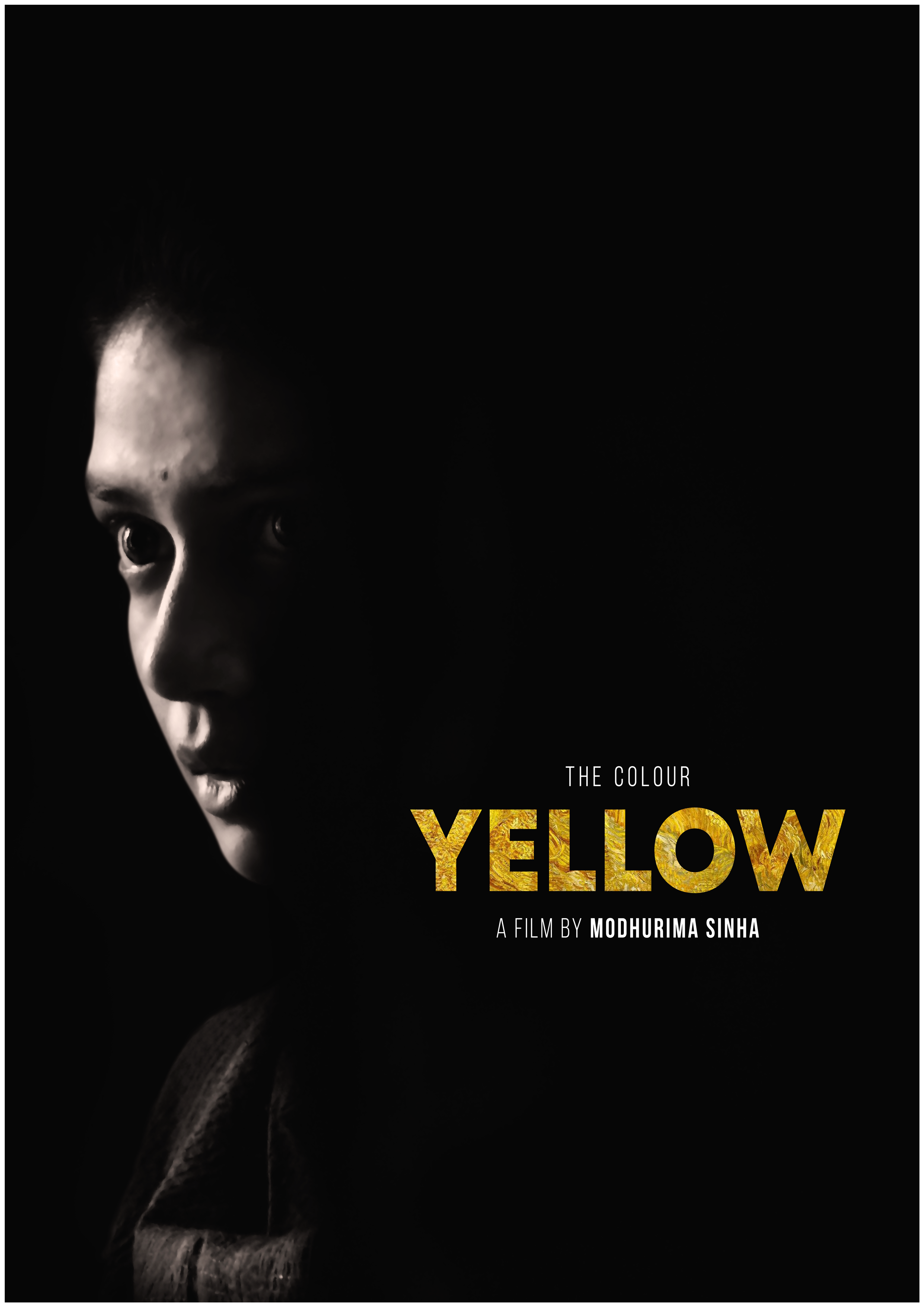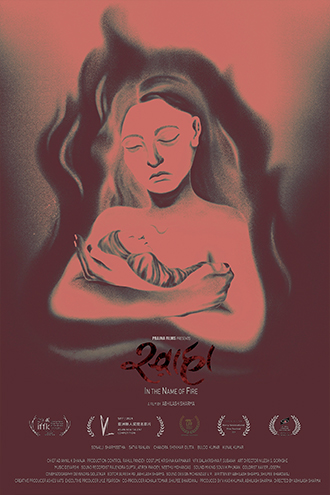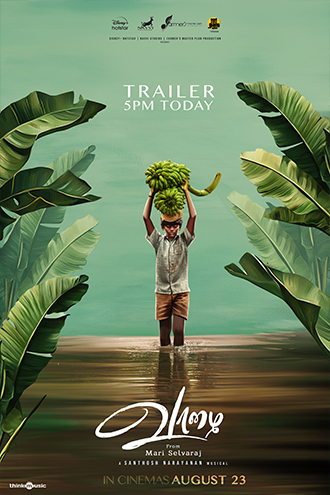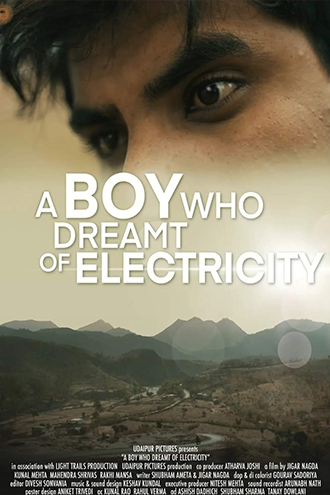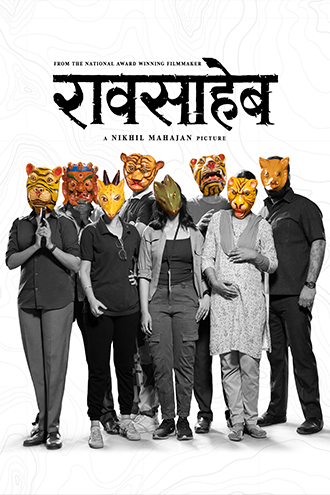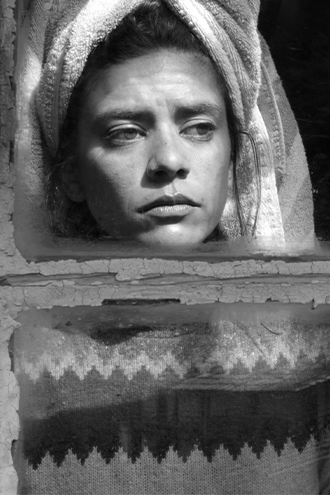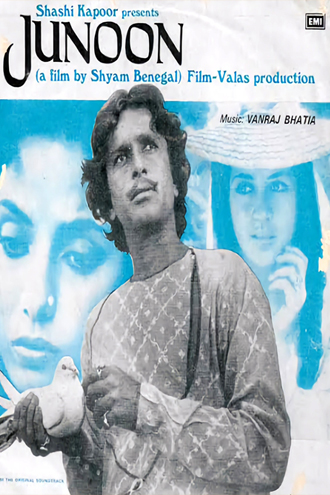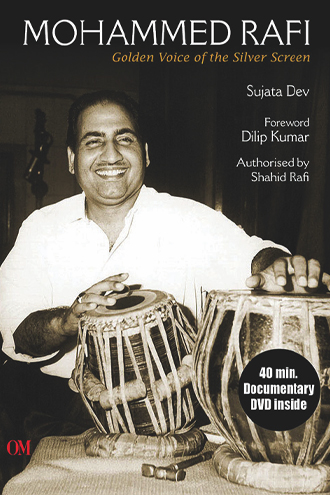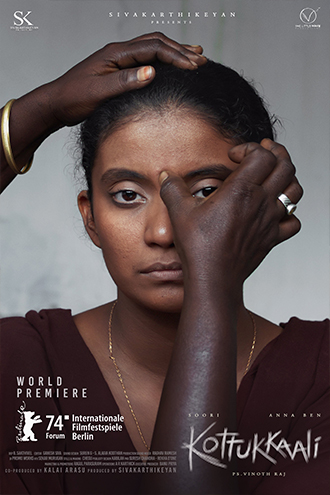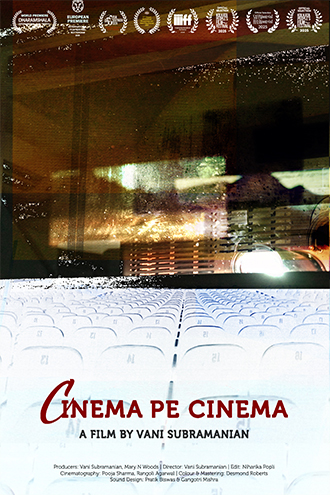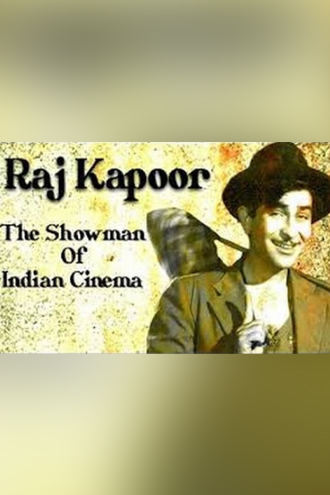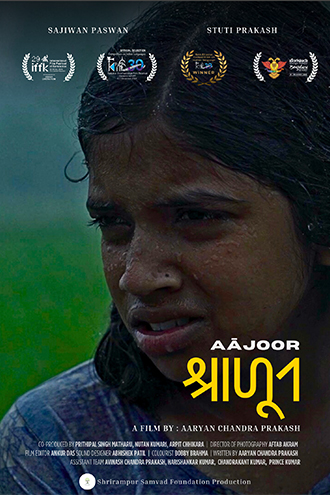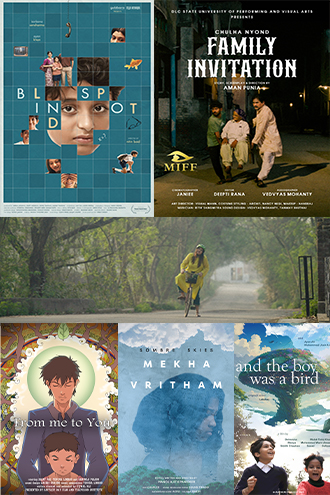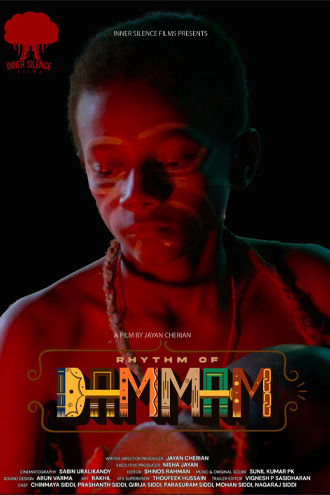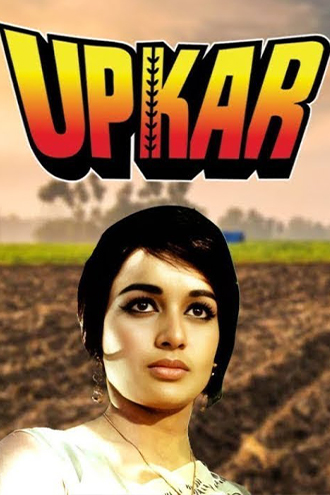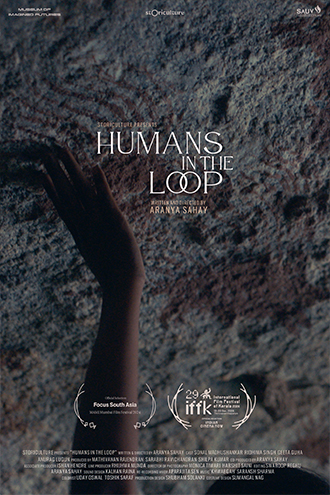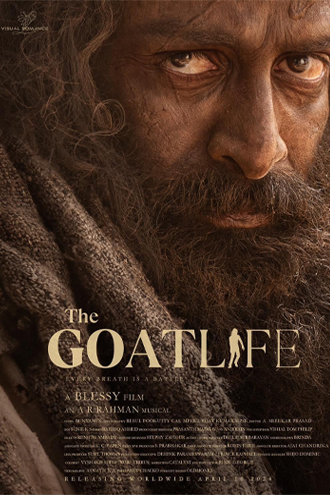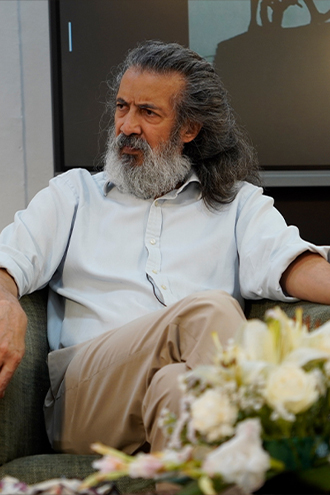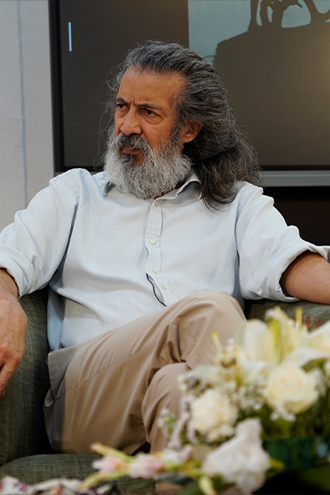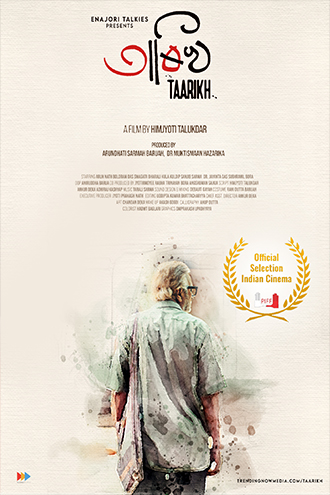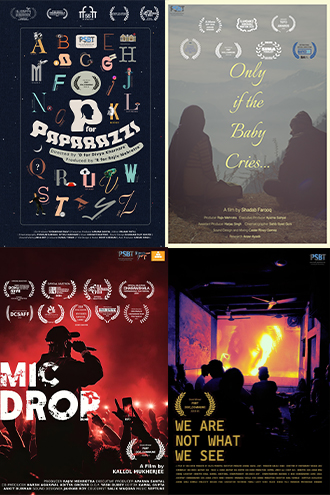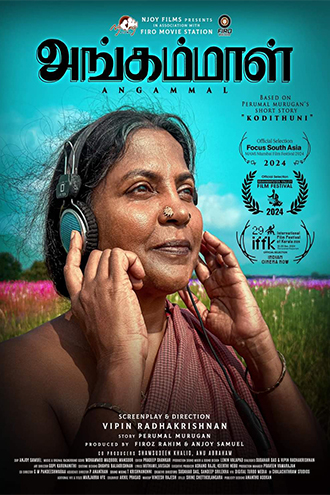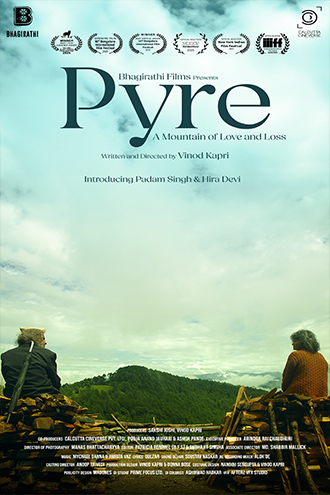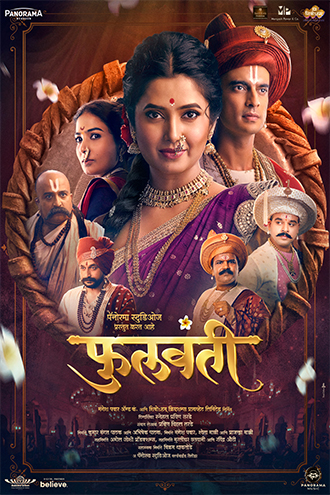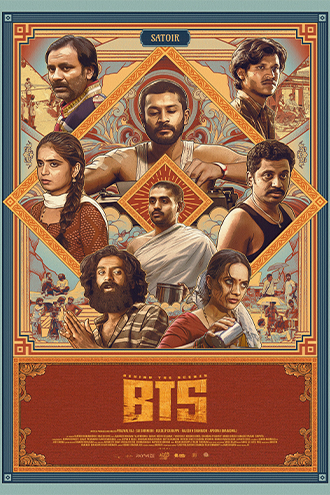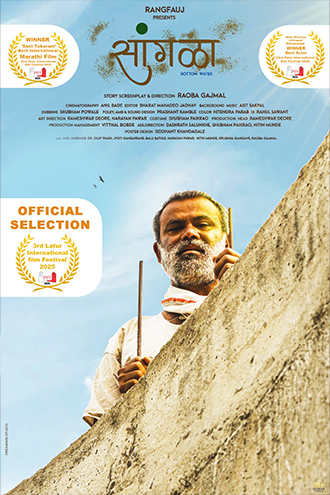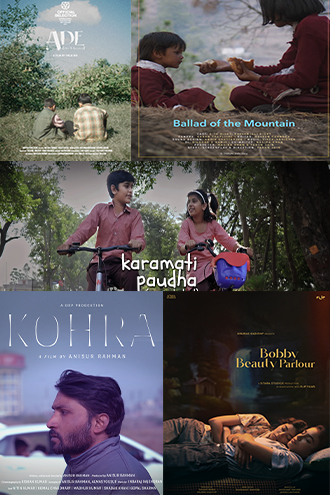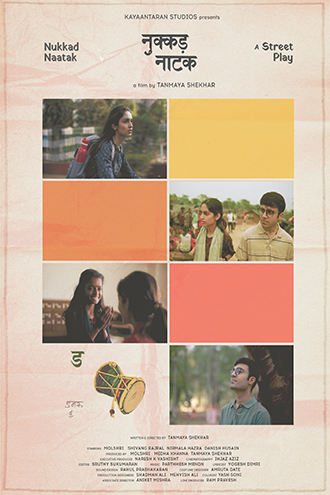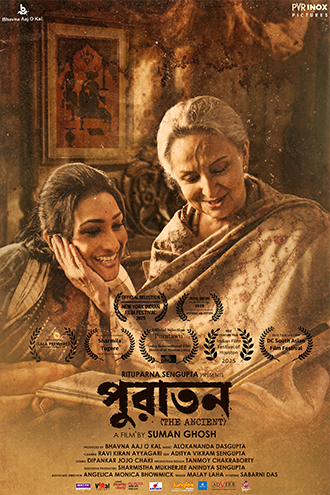HABITAT FILM FESTIVAL 2025
16th - 25th May, 2025
To register, click on each film and fill in the necessary details
HABITAT FILM FESTIVAL 2025
16th May 2025
17th May 2025
Celebrating 50 years of Shabana Azmi in Indian Cinema. Shyam Benegal Retrospective.
Shyam Benegal
18th May 2025
19th May 2025
20th May 2025
21st May 2025
22nd May 2025
23rd May 2025
24th May 2025
Masterclass. Cinema as a Critical Educational Resource by Neville Tuli. Part 1
NA
Masterclass. Cinema as a Critical Educational Resource by Neville Tuli. Part 2
NA
25th May 2025
Behind The Scenes
Apoorva Bharadwaj, Kuldeep Cariappa, Prajwal Raj, Sai Shrinidhi, Rajesh N Shankadh
A mysterious woman walks into the life of a depressed, heartbroken, lovelorn and ailing cab driver. She is both a cure for his miseries and an inception to many adventures.
Aparna Sen is an Indian film director, screenwriter and actress of international renown who started her career with Satyajit Ray's 'Teen Kanya'. This is the first ever attempt on film to take stock of her six decades in cinema, as an actress and as a director. The film draws Sen into a conversation about her life and work, her intellectual and artistic influences, and her own subsequent forays into acting and direction. Sen has made 17 films and is the only woman to have ever won the National Award for Best Director, twice for her debut 36 Chowringhee Lane (1981) and Mr and Mrs Iyer (2002).
The structure of the film is such that the director Suman Ghosh (who directed Aparna Sen in one of his films) takes Aparna Sen in a walk down memory lane to visit the locations where she had shot some of her iconic films. She reminisces about the days of her shoot and in the process the documentary delves into her films and the impact it created in the history of Indian cinema.
The film also draws some of Sen's most influential colleagues and collaborators into conversation about her life and work to situate her and her work in a historical context.
The film also pays tribute to a witness of Indian cinema in a time of exceptional ferment who still champions religious and other ethnic minorities, champions pluralism and diversity.
A memoryscape of some women and men whose lives touch, or have been touched by single screen cinemas in India. As they share reminiscences of film-going and reflect on their connections to life outside the theatre, we relive larger-than-life movie moments together and even visit cinema halls that can no longer welcome anyone in. In doing so, Cinema Pe Cinema becomes an act of resistance against forgetting single screen cinema theatres as they shutter down across India. An effort to keep the memories of some films alive through traces of their audio and visual ephemera. A shared cinematic space in which diverse audiences speak of complex theatre-going experiences.
An Indian man seeking work follows a job lead to Saudi Arabia, only to find himself forced to labor without pay as a goat herder in the remote desert.
A Kannada anthology film that tells five distinct stories, that explore the deep influence of cinema on the lives of both creators and viewers, showing the sacrifices, dreams, and challenges filmmakers, actors, and crew members endure.
11:00am - 1:00pm
Cinema as a Critical Educational Resource is a leading Research Category at T.R.I.S. This is amply visible in its online knowledge base tuliresearchcentre.org
To ensure that the HFF is not merely a viewing opportunity, but a learning experience that widens the knowledge-base of every cinephile, this year’s HFF will also feature an extended masterclass by Neville Tuli, Founder and President, Tuli Research Centre for India Studies, on cinema as a critical educational resource. The workshops will be especially interesting for students, academics and faculty members who are primarily interested in using the world of cinema to integrate across all other subjects with an in-depth and relatively unique transdisciplinary pedagogic approach to learning.
Twelve year old Sivanaindhan lives alongside his mother, sister and friend in a village of wage earners who work at plantain plantations, and hopelessly seeks to live the merry life of a flitting butterfly.
Between constant hunger and trying to stop his mother's tears, he spends his school holidays by lugging plantains instead of playing. Into his parched life, a school teacher descends like a gentle drizzle and drenches him with her love. All of a sudden, his dreams are shattered and time pursues him relentlessly. With a wicked grin, merciless fate ends up at his doorstep. In Sivanaindhan's life, the plantain is a green hued monster that regrows at every hack. It is a tree that bears its fruits out of the reach of the hungry.
In the heartwarming and riotously funny family drama "Gharat Ganpati," chaos unfolds during the vibrant Ganpati festival in the picturesque Kokan region. Ketan, a carefree young man, decides to throw a curveball into the traditions of his eccentric and dysfunctional Gharat family by bringing his spirited Delhi girlfriend, Kriti, into the mix.
In a remote village, Rukhiya and Phekan, from the Dalit community, face daily struggles and social discrimination. When village work halts due to a traditional celebration, Phekan leaves for the city but is betrayed, exploited, and left with nothing. Rukhiya, left alone, endures isolation and cruel judgment from the villagers. Haunted by past traumas and strange whispers, she loses touch with reality. Nehura, a crematorium worker, struggles with guilt after cremating an unknown body for alcohol. Seeking redemption, his path unexpectedly crosses with Rukhiya and Phekan, revealing a deep spiritual connection that binds them in a journey of madness and awakening.
An Adivasi woman begins interacting with AI while working in a data centre in the remote Indian state of Jharkhand.
After a divorce, Nehma returns to her tribal village with her children. To support her family, she takes an unusual job as a 'data labeller'. She trains algorithms to see & distinguish objects, approaching the task with the care of a parent teaching a child. As she works, Nehma uncovers human biases in AI systems, questioning if AI can truly adapt to an indigenous perspective.
Phullwanti, a famous dancer known throughout India, comes to Pune to perform at the Peshwa's court. However, her performance is interrupted by a remark from the court scholar, Venkat Shastri. Determined to defend her art, Phullwanti challenges him, leading to a contest that pits her artistic talent against his intellect.
In a dystopian patriarchal society where masculine dominance is the norm, a social pariah settles scores and deals with his sense of emasculation by ruthlessly getting back at unsuspecting women, changing their lives forever.
Two females, complete strangers, Birwa and Tara. One is a victim of human trafficking, one is about to meet the same fate. As their lives and worlds collide, Maaran explores the dystopian reality of a patriarchal world where gender-based discrimination, subjugation and violence are the norms.
Two families are planning the wedding of their daughter Meena and son Pandi. The trouble is: Meena is in love with someone else – from a lower caste. The film opens when all is said and done, and the family’s will has left Meena cold. She has lapsed into a monumental silence. Her family can find just one logical explanation for this state of affairs: Meena must be possessed. Once exorcised, nothing can stand in the way of happiness. So the double family party rattles and creaks their way to see a vanquisher of demons.
A poor young man named Raj joins a criminal gang to feed his mother. But when he falls in love with Rita, he decides to reform himself for her.
The film is considered a landmark in Hindi cinema, significant for its social commentary, visual style, and enduring cultural impact. It explores themes of poverty, societal inequality, and the struggle for justice. Known for its unique visual style, it influenced subsequent generations of filmmakers and actors in Hindi cinema.
Thommy is a loyal servant of Bhaskar Patel. But Patel is a ruthless tyrant. Thommy struggles between his moral sense and his professional sense. He is finally redeemed without compromising his duty as Patel's servant.
A fictionalised narrative of the genesis of a dairy cooperative movement that transformed India from a milk-deficient nation to the world's leading milk producer. The story drew inspiration from Verghese Kurien - known as the "Milkman of India" for revolutionising milk production in the country.
This talk looks back at the careers of Rajinikanth and Chiranjeevi to draw attention to the characteristics, limitations and possibilities of southern superstardom. Rajinikanth and his Telugu counterpart Chiranjeevi began their careers in Chennai (then known as Madras) in the mid-to-late 1970s. Their early films were off-beat and were markedly different from the vehicles of the older stars of that period. Within a decade, they were widely recognized by their respective industries to have inherited the mantles of MG Ramachandran and NT Rama Rao respectively. As they grew in stature, they attempted to build parallel careers in Hindi but with limited success. By the turn of the century, they exemplified a model of stardom that had few parallels beyond South India. Among other things, the Rajinikanth and Chiranjeevi variant of superstardom comes with a foray into politics. In the more recent past, Rajinikanth moved on from being a Tamil superstar to a pan-Indian one while Chiranjeevi struggles to remain relevant even in the Telugu industry. But the similarities between them are undeniable: every once in a while, Rajinikanth too delivers a critical and commercial disaster. What do we make of southern superstardom and its remarkable ability to survive?
The talk will be delivered by Prof. S.V. Srinivas.
Prof. S. V. Srinivas teaches courses in literature and media at Azim Premji University, Bengaluru. His research focuses on the intersections between moving images, entertainment industries, and mass politics in India. Consumers of films and media forms have been an important focus of his research. He has two books on Telugu cinema: Megastar: Chiranjeevi and Telugu Cinema after NT Rama Rao (Oxford University Press, 2009) and Politics as Performance: A Social History of the Telugu Cinema (Permanent Black, 2013). He has also published articles on the reception of Rajinikanth's films in Japan, and his contribution to the emergence of South Indian blockbusters.
Talat Mahmood : The Definitive Biography by Sahar Zaman. The book moves along the history of India, from British India, Partition to post independent India with the success of establishing India's film industry, music industry and Ghazal music industry. Talat Mahmood was a rare pre-independence celebrity and a post - independence film star. Alongside his most iconic songs and musical highlights, the biography reveals lesser-known aspects of Talat Mahmood’s life. The author will be in conversation with renowned Doordarshan news anchor, Salma Sultan.
Based on a classic Urdu short story "Aanandi" by writer Ghulam Abbas, the film narrates the story of a brothel, situated in the heart of a city, an area that some sanctimonious politicians want for its prime locality. Forbidden love, fraying loyalties and flagrant hypocrisy emerge when they try to drive her out.
Set during the 1857 War of Independence, an obsessed Indian Nawab desires to wed a young Anglo-Indian woman, but the girl's obstinate mother stands between them.
Mohammad Rafi - Golden Voice of the Silver Screen by Sujata Dev. Born in 1924 at Kotla Sultan Singh, a village near Amritsar, Mohammed Rafi, nicknamed ‘Pheeko’, the second youngest of Hajji Ali Mohammed and Allah Rakhi’s six sons, started singing early, deeplyinspired by the songs of a wandering fakir in the village. In the 1920s, circumstances compelled Rafi’s father to move to Lahore where he opened a small dhaba.Rafi’s elder brother, Mohammed Deen started a barber shop in Noor Mohalla,Bhatti Gate in the same city, with Rafi lending him a helping hand. Meanwhile, Mohammed Deen’s friend, Abdul Hameed recognised Rafi’s talent and encouraged him to sing. Later, he convinced the reluctant family to allow him to take Rafi to Bombay. In 1944, the two arrived in an alien city from where MohammedRafi slowly won over the heart of an entire nation.
The author will be in conversation with Bobby Sing, creative consultant, visualiser, author and columnist on cinema. Moderated by Shantanu Ray Chaudhuri, Editor In Chief, Om Books.
Widowed Radha lives in rural India in the 1960s, along with two sons: Bharat and Puran. While she would like to educate her sons and ensure that they lead good lives, she cannot do so on her own, and must sacrifice the career of one son so that the second can achieve this goal. Bharat sacrifices everything to educate his brother Puran. However, Puran turns into a greedy man and gets involved in drug trafficking in order to make money.
After years of painstaking research, Dr. Dipankar Roy discovers a vaccine for leprosy. News is flashed over television and overnight, a junior doctor receives international recognition. After suffering humiliation at the hands of his seniors, Dr. Roy suffers a mild heart attack. The last straw is two American doctors receiving credit for discovering the same vaccine.
This is a story about young girls after they are rescued from trafficking. A story of hope, about their strength, resilience, and continuous fight against injustice as they deal with trauma, discrimination, stigmatization, threats, re-victimization. An amazing association of twenty girls called ‘’Utthan’’ which means uplifted in Bengali, who are now helping almost two hundred survivors, regenerate themselves, through outreach programmes, with the help of various social workers and Sanjog, led by Uma Chatterjee, a dynamic NGO based in Kolkata, working on human rights and gender equity ,combating violence against women and children. This story, traces the journey of some of these Survivor leaders, who were trafficked from spaces of trust and exploited by force, who managed to escape and are now fighting for not just their own rights, but are part of a movement, becoming self-sufficient and ultimately becoming part of the policy and law making system of the country. Added to their story is a quirky Van Gogh element of inspiration.
Celebrating 50 years of Shabana Azmi in Indian Cinema. Shabana Azmi in conversation with writer - director Aparna Sen. Followed by screening of Ankur.
Belonging to a lower caste, Lakshmi and her deaf-mute husband Kishtayya serve the landlord's son, Surya. When Surya's young wife finds out about his affair with Lakshmi, they all find themselves at crossroads.
Winner of the First Aruna Vasudev NETPAC Award.
In Mumbai, Nurse Prabha’s routine is troubled when she receives an unexpected gift from her estranged husband. Her younger roommate, Anu, tries in vain to find a spot in the city to be intimate with her boyfriend. Parvati, the cook at the hospital, is Prabha’s friend and confidant. The three women take an unexpected trip to a beach town in Ratnagiri that allows them the space to reflect upon their life choices.
Manab and his wife Bhairabi reside in Baghjan, a village surrounded by rich oil and gas fields. One day, a huge explosion occurred during oil extraction, causing a fire that engulfed their entire village, leading to severe consequences, especially for Manab.
“Dhrubor Aschorjo Jibon" is a crime drama film which tells the captivating story of Dhrubo, a young man standing at a life-altering crossroads, faced with four distinct paths. As he struggles to save his girlfriend’s family while uncovering the truth about his own origins, each choice he makes sets him on a vastly different course.
Dhrubo’s journey is a relentless battle between morality and love, justice and compassion. Each decision thrusts him into a unique and challenging world, where survival is the key to discovering the ultimate truth.
Victoria, a young beautician in a suburban beauty parlour, decides to elope with her Hindu boyfriend after a fierce clash with her conservative Catholic parents. Amidst the turmoil, a neighbor asks her to temporarily house an offering rooster destined for a festival at St. George church inside the parlour. Juggling the rooster's antics, unexpected clients, and her boyfriend's uncertainty, Victoria grapples with conflicting emotions leading to a day of intense personal and spiritual revelations.
City girl Nia visits her family home in the Himalayas in winter, alone; traumatised after undergoing an illicit abortion. The caretaker of the house departs, leaving his old mother-in-law Bhemi, in charge. Her days are filled with manual labour & looking after her naughty grandson Sunny. The 3 distinct souls find themselves bound together beyond age & class divides. Even as Nia starts to smile again, demons of her past keep catching up on her, as she struggles to give herself a ‘Second Chance’.
In Uttara Kannada, India, Jayaram Siddi, a twelve-year-old boy, is believed to be
possessed by the spirit of his late grandfather, Rama Bantu Siddi. Despite seeking
help from local black magicians, Jayaram's condition remains unchanged. He
escapes into a dream world, using 'magical' instruments from his grandfather to
connect with his ancestors. However, he becomes overwhelmed by the agonizing
history of his ancestors' chattel slavery, losing touch with reality. Jayaram drops out of school, and his family strives to restore his balance by embracing tribal rituals and Dammam music, both vital to their cultural heritage. The film delves into Jayaram's struggle with intergenerational trauma, emphasizing the challenges faced by him and his family in finding healing and stability.
In a remote part of the Indian Himalayas, aging couple Padam and Tulsi find their world
beginning to erode. Their once lively village is now desolate as more and more families
migrate to the cities, leaving the couple to wonder if there will be anyone left to carry out
their last rites when their time finally comes. With little hope left, the couple begin to feel
themselves wither away beside their beloved village, turning to their childlike bickering as a
source of fleeting distraction. One day, to their surprise, Padam and Tulsi receive a letter
from their son, a son who they have not heard from in over 30 years. Through this
unexpected beacon of hope, their lives change overnight as their once estranged son
unwittingly provides them with the will to live on.
Rittika returns to her ancestral house with her husband Rajeev to celebrate her mother’s 80th birthday. After reaching her house she finds that her mother is not the same as she had always believed her to be. Initially jolted with this realization, she slowly comes to terms with her condition and its irreversibility. Through her mother she comes to change her perspective on life and being. What seemed like an ostensibly routine and ritualistic event turns to a larger metaphysical enquiry into human existence and how the past dictates our current state. The film deftly braids in questions of failing memory, cherishing the past, a fear of obsolescence and reconciliation into a haunting, moving story that is at its heart about burying the ghosts of the past in order to make peace with what has happened so that one can move on.
Habitat Film Festival 2025 - The Best of Pan Indian Cinema. (Opening performance) Dastan-e-Raj Kapoor (Hindi, Urdu, Punjabi & Bundeli/ 100 mins) Dir. Mahmood Farooqui. Wri. Sibtain Shahidi. Produced by Anusha Rizvi. A compelling narrative that encapsulates the remarkable journeys of two iconic figures in Indian cinema—Prithviraj Kapoor and Raj Kapoor. It delves into the personal and professional struggles and triumphs of Raj Kapoor, illuminating the path that led him to become a towering figure in the annals of Indian cinema. A homage to the legendary actor and director, Raj Kapoor, whose contributions to Indian cinema continue to inspire audiences across generations. Performed by Rajesh Kumar & Rana Pratap Sengar. Prod. Dastangoi Collective.
Tickets at Rs.500, Rs.350 and Rs.200 available online on bookmyshow.com and at the Programmes desk, IHC.
Fathima, a housewife in the coastal town of Ponnani, lives under the strict control of her orthodox husband, Ashraf. When her son wets their old mattress, Fathima’s attempt to replace it sparks conflict. Ashraf blocks her at every turn, despite her back pain and growing frustration. Eventually, Fathima realizes the mattress represents more than just comfort it’s her chance to reclaim her independence. By finally buying it, she takes a bold stand
Presented in collaboration with Rough Edges.
All That We Own (Docu/ 2025/ Hindi/ 30 mins) Dir. Aprajita Gupta. Her first home in Nagaland, a lingering echo of displacement. is visiting her homeland, a moment of rootedness or a reminder that belonging is elusive? Filmmaker will be present for Q & A.
Awards & Festivals: IAWRT, Asian Women’s Film Festival, Delhi
Making Space (Docu/ 2024/ Hindi/ 14 mins) Dir. Nikita Parikh. Alsana lives in a small, chaotic neighbourhood in Ahmedabad, with an 85 acre landfill on one side and a highway on the other. Her drawings show signs of the society seeping in, as she grapples with conflicts closer to home. Followed by online Q & A with the film maker.
Awards & Festivals: International Documentary And Short Film Festival, Kerala, National Documentary Short Film Festival, Thrissur, Dharamshala International Film Festival, IAWRT, Asian Women’s Film Festival, Delhi
Log Kya Kahenge (Docu/ 2024/ Gujarati, Hindi/ 40 mins) Dir. Rafina Khatun. The story of a young muslim woman dreaming differently in a patriarchal world. Followed by online Q & A with the film maker.
Awards & Festivals: IAWRT Asian Women’s Film Festival, Delhi, Kolkata People’s Film Festival,Constitution Hill Human Rights Film Festival, Johannesburg, Imagineindia, Madrid
An old, single man leads a retired and lonely life but enjoys it as much as possible. Everything changes when he receives a wrong number phone call, creating a window into the lives of a girl and her live-in partner.
Presented in collaboration with Rough Edges.
Umbro (Docu/ 2024/ Gujarati, Hindi/ 34 mins) Dir. Prachee Bajania. Through the filmmaker's mother and her friends in the small town of Dhrangadhra, joyful friendships among women, routinely dismissed and unsung. Followed by online Q & A with the film maker.
Awards & Festivals: Best Documentary, Reelfocus, Beijing International Film Festival, Second Best Film, Short Documentary, International Documentary And Short Film Festival Of Kerala, Trivandrum, Indian Documentary Film Festival, Bhubaneswar, Dharamshala International Film Festival, Kala Ghoda Arts Festival, Mumbai, IAWRT Asian Women’s Film Festival, Delhi, Kos Minar International Documentary Film Festival, Haryana
B25 (Docu/ 2024/ Hindi, English/ 34 mins) Dirs. Raqeeb & Manvendra. The film reframes notions of home and belonging, while reflecting on queerness, love, chosen families, gender, violence, identity and freedom, against the backdrop of a rapidly changing india. Filmmaker Raqeeb, will be present for Q & A.
Awards & Festivals: Indian Documentary Film Festival, Bhubaneswar, Pink Life Queerfest, Ankara, Dialogues Film Festival, Kolkata, Wip Alt Fest, Delhi
Young Mizi stands with her three elder sisters as they navigate various hurdles that life throws at them: their gossip-loving mother keeps track of their monthly cycles, there is a sudden death, a mother-in-law who talks to dead relatives, uncooperative broiler chickens and so on. Life is tough, but Mizi and her sisters face everything with resilience and a never-say-die attitude.
A teenager battles fear, societal taboos, and gender bias while honoring a promise to her mother in this poignant coming-of-age story.
A rural medical officer abruptly leaves his professional duty to pursue his passion for acting, but learns the price of following dreams that defy social structures, as viewers are entangled in a formal dynamic of identity, performance & language.
In the heart of the deep forest, a timeless battle brews between greed and preservation, capitalism and conservation. Brave officers face off against a cunning mafia in a struggle that transcends mere human conflict. But as the jungles very soul hangs in the balance, will they stand united to protect the delicate harmony between humanity and wildlife?
"Aājoor" depicts Saloni's defiance of societal norms to attend school in rural Bihar, intertwining the boys' fascination with social networking, against the backdrop of her father's courage and her determination amidst challenges.
Presented in collaboration with PSBT.
P for Paparazzi ((Hindi, Maithili, English/ 2024/ 26 mins) Dir. Divya Kharnare. Amidst the chaos of flashing lights and crazy crowds, Manoj, an established Paparazzi from Nepal, faces off against fellow photographers in a high-stakes race to capture the most sensational photos. Despite his years of experience and connections with celebrities ranging from Boney Kapoor to Alia Bhatt, Manoj finds himself confronting the harsh reality of his brother's deteriorating health.As Manoj navigates the sweaty nights of Mumbai, his encounters with celebrities offer glimpses into the glitz and glamour of the entertainment industry but also highlight the human side behind the fame. With each click of the camera, Manoj grapples with the moral dilemmas of his profession and the weight of his brother's fate hanging in the balance.Will Manoj's connections and perseverance be enough to secure the funds needed for his brother's treatment, or will he find himself facing a solitary battle for survival?
Festivals & Awards : Jury Award for Best Editing (Short Documentary), 16th IDSFFK 2024, Dharamshala International Film Festival 2024, Film South Asia 2024, 24th River Florence Indian Film Festival 2024, 13th Chennai International Documentary & Short Film Festival 2024,Longlisted, Toto Funds the Arts 2024-25
Mic Drop (Hindi, Bundelkhandi/ 2024/ 27 mins) Dir. Kallol Mukherjee. An electrifying performance by Ankit ignites the stage, leaving the audience in awe.But when the organizer refuses to pay them the next day, Ankit's disappointment turns into determination. Without hesitation, he revs up his bike and races towards the city.Arriving at a friend's house, they transform the bedroom into a makeshift recording studio. Ankit changes his clothes and with each layer of clothing replaced, a commonguy sheds his former self and wears his new identity: FPC ANK, The BundelkhandiRapper. The documentary delves deep into FPC ANK's world, exposing his tenacity and unwavering passion as he tirelessly works on his debut album to tell the stories of his people. The film takes a behind-the-scenes approach, capturing his artistic process from the initial stage of inspiration to producing a music video from his debut album through all the frugal ways! With every moment, the audience is left on the edge of their seats, eagerly wondering: Will FPC ANK make it after all?
Festivals & Awards : Best Music Documentary, 13th Annual DC South AsiaFilm Festival 2024, Jury Award, 11th Smita Patil International Film Festival 2025, 8th Doku BAku International Documentary Film Festival,13th International Film Festival of South Asia [IFFSA], Film South Asia 2024, Tasveer Film Festival 2024,Dharamshala International Film Festival 2024, Madurai International Film Festival 2024, Longlisted, Toto Funds The Arts 2024-25
Only If The Baby Cries (Silent/ 2024/ 15 mins) Dir. Shadab Farooq. In the mountains of Dhadkai, a secluded himalayan village in Jammu and Kashmir, many people can't hear or speak. Dhadkai stands as the world's only village predominantly afflicted by deaf-mutism, a mysterious phenomenon that continues to baffle experts.‘Only if the Baby Cries’ films Misra Khatoon and Mohammad Iqbal, a young couple in their20’s, brace themselves with fear, anxiety and hope as they approach childbirth. As the time for the birth approaches, the villagers and relatives gather around their home,creating noise with banging drums, clanging utensils, and whistling—the village’s tradition to test the newborn's response. According to the village's beliefs and experiences, if the newborn cries loudly but keeps the eyes closed for the first two days, they might be deaf. However, confirming if the newborn can't talk usually takes around six months of careful observation and patience.
Festivals & Awards: Short Joy Award, Jihlava InternationalDocumentary Film Festival 2024, Slamdance Film Festival 2025 , Longlisted, Toto Funds The Arts 2024-25
Where The Taro Grows (Sylheti/ 2024/19 mins) Dir. Anunay Barbhuiya. Assam-type houses are part of the architectural history of Northeast India. Most of these houses in Barak Valley, Assam, India, are now deserted, beyond repair, and unsafe for habitation. They remain occupied either by seniors or abandoned by people seeking better prospects in cities. In recent times, there has been alarming replanning and construction in the region. Encroaching upon rural and forest areas, coupled with hill cutting, is causing intensified environmental calamities.As visuals reveal these houses amid rapid developments, fictional phone conversations between two siblings from this region who are working in different cities far from here are heard. Like many educated youth, they left for prosperous careers, growing dependent on a different lifestyle. Any prospect of their return seems highly unlikely.The conversation delves into their connection with their home and their vanishing sense of belonging as they contemplate selling their uninhabited, dilapidated ancestral land.
Festivals & Awards: 16th International Documentary and Short FilmFestival of Kerala 2024, Work-in-Progress Lab, Mumbai International Film Festival 2024
We Are Not What We See (Tamil, Hindi/| 2024/ 10 mins) Dir. Hou-hsein. In a dim, dusty room within Mumbai's Slums, locals gather as a film is projected,transporting those who enter into a realm offering solace from the relentless urban chaos. An exquisite examination of the rhythm and ambience inside the exterminating alternative cinema space-the video parlors. An audiovisual ode to an alternative cinema space the video parlors situated in the slums of Mumbai where the local people come and watch films. The film's ode embraces the transformative power of cinema, even in the most humble and overlooked corners of society.
In a remote rustic village in the South Indian state of Tamil Nadu, in the mid-90's, a city educated young man feels awkward because his mother doesn't wear a blouse. But this is how his mother always dressed. What changed suddenly? As he tries to find a solution before a visit from his prospective in-laws, a simple problem spirals out of control.
Presented in collaboration with Films Aaj Kal.
The Cycle (Hindi/ 2024/ 18 mins) Dir. Arpita Mukherjee. The Cycle tracks a day in the life of a young Punjabi housewife in Chandigarh, India who is obsessed with losing weight as she joins a cycling club and grapples with the cost of individuality and freedom.
Chashma (Blind Spot)( 2024/ Hindi/ 26 mins) Dir. Nitin Baid. Set in 1992, the film tells the poignant story of Supriyo, an 11-year-old boy whose struggles with poor eyesight, mirroring the societal blind spots of a nation in transition.
And The Boy Was A Bird (2024/ Hindi/ 15 mins) Dirs. Debaruna, Malak, Manya, Siddhi, Suaad, Sufi, and Waris. Ambar and Neer belong to two entirely different worlds. Ambar, despite the monotony and the hardships that surround him, finds his escape in his vibrant imagination- the talking trees, giant mushrooms and the golden elephant are his best friends. Neer, disciplined and obedient, knows how to follow the rules and his timetable but yearns to escape from the expectations he's burdened with. As their worlds slowly begin intertwining, Neer finds an escape from his reality, and Ambar finds a friend who finally understands him.
Mekhavritham (Sombre Skies)( 2024/ Malayalam/ 10 mins) Dir. Manoj Ajith Panicker. After her mother’s heartbreaking demise, 11 year old Nandhana runs away with the ‘bali pindam’ and disrupts the final mourning day rituals. She puts the entire village on the run as she runs aimlessly, putting on hold her duty of a duty on her parent’s death as per the Hindu custom.Her cousin, Amit tries to talk to her, to understand the pain that is eating away inside the kid and help her process this period of grief.
Owners & Cleaners (2024/ Hindi/ 15 mins) Dir. Ashutosh Nayak. Manan, a financially struggling outstationed student tries to maintain his friendship with his wealthy friend Raghav. Raghav's ignorance makes Manan want to keep his distance but the dependent nature of the relationship forces him to be subservient.
Family Invitation (Chulha Nyond) (2024/ Hindi/ 27 mins) Dir. Aman Punia.This film is about a character Bheem(56) a strict but respected retired teacher with diabetes is sending an invitation to the whole village for his only son's wedding, except his estranged younger brother's family due to a lingering feud. Overworked and stressed in the wedding preparations Bheem gets a diabetic attack at night. He reverts to his former authoritarian self Bewildering villagers and family. This unexpected turn of events leads to a heartwarming realization.
From me to You (Animation/ 2024/ Nepali /10 mins) Dir. Ujjwal Rai. Haunted by a family curse that has plagued generations, Som must confront the darkness threatening his young son. Desperate to break the cycle, he embarks on a dangerous spiritual journey to uncover the curse's origins and save his family.
Bobby Beauty Parlour (Hindi, Punjabi/ 2024/ 18 mins)Dir. Shashwat Dwivedi. On the hottest day of the year, Eelu drops by to see her best friend Manu, who works at the local beauty salon. When the owner of the salon suffers a heatstroke, the girls find themselves alone and unable to get out due to the severe heat. Trapped together in the claustrophobic confines of the salon,the girls get comfortable in their mumblecore haven. They chat, laugh, and dance, but their carefree revelry is punctured by the sudden arrival of a man, asking for Eelu. The girls' friendship is tested as they navigate the horror of men, the complications of growing up, and personal loss. Within the four walls of Bobby Beauty Parlour, Eelu and Manu must come to terms with their own ambitions and desires, and find closure as one of them leaves this city for bigger ambitions and the other can’t bear it.
Festivals & Awards: 16th IDSFFK, DIFF 2024, MAMI 2024, IFFSA Toronto, IFFLA 2024, YOUKI 2024
Ade(On A Sunday) (Tenyidie/ 2024/ 17 mins) Dir. Theja Rio. Set in 2002, eight-year-old Ade resides in a Nagaland village with his mother, father, and brother. His father, a low-ranking constable, drowns his sorrows in alcohol, while his mother sells local rice beer to make ends meet. One Sunday, Ade joins his best friend and partner in crime, Abu. Together, the boys skip Sunday school to swim in a nearby pond. Their plan, however, is disrupted when an adult chases them away. With time to spare and no backup plan, the boys' curiosity leads them down a path where they encounter the adult world for the first time.
Festivals & Awards: International Film Festival of Rotterdam, Indian Film Festival Los Angeles, MAMI Mumbai - Best Film
Ballad of The Mountain( 2024/ Hindi/ 17 mins) Dir. Tarun Jain. An outcast must fight the class bullies to overcome her fears and pursue her ambition to fly to the other side of the mountain.
Festivals & Awards: MAMI, DIFF 2024, IFFI 2024
Karamati Paudha (Hindi/ 2024/ 18.51 mins)Dir. Tariq Mohammad. Ten-year-old Subbu and Maggi visit their schoolmate Montu’s house to play video games and discover that Montu’s family is wealthy because of a magical plant Montu’s father stole from his boss’s house. Tempted, Subbu steals a branch of the plant. When Montu realizes this, he becomes furious and questions Maggi and Subbu, but they deny any involvement. Coincidentally, the duo starts receiving unexpected money, reinforcing their belief in the plant’s magic. Meanwhile, Subbu’s aunt, who came to their home, gifts him and his sister Panchhi five hundred rupees each. Subbu keeps 500 rupees for himself and gives only 500 rupees to his mom. Maggi, seeing the money, asks for pizza, but Subbu refuses, which angers him, and he spills the beans in front of Montu. Meanwhile, Subbu’s mother discovers the remaining money and scolds him. Later, Subbu finds the magical plant missing and learns from his mother that Montu had come to home. Distraught, Subbu thinks his luck has vanished with the plant. That evening, Subbu’s father, celebrating his promotion, gifts bicycles to Subbu and Panchhi and reveals a bamboo plant, claiming it brought him success. Subbu and Panchhi, now hopeful, stand before the new plant, and Panchhi wonders if all plants have magic. Subbu replies, “It seems so.”
Festivals & Awards: IFFSA Toronto, Jagran Film Festival 2025, Smile International Film Festival for Children & Youth (SIFFCY 2025) organized by Smile Foundation and the European Union, Bulbul Children’s International Film Festival 2025 organized by the Department of Information & Publicity, Government of Goa, Mumbai International Cult Film Festival 2025 - Winner Best Children’s Short Film Award
Kohra (Hindi/ 2024/ 25 mins) Dir. Anisur Rahman. A short drama, about a man's dream that would never come true and it was lost in the fog of millions.
After being caught robbing the college canteen, best friends Molshri and Shivang
are expelled. To be reinstated, they must enroll five children from an impoverished slum into a local school.
Two souls meet after 22 years and continue their life as if they are living it for
long in a serene mountain. The man’s days are numbered and husband of the woman comes and join them at the mountain bungalow.
Obur (2024/ Kashmiri/ 23 mins) Dir. Faraz Ali. A teenaged horse guide stumbles into chaos as he tries to recover his precious phone data from the elusive 'cloud' - an internet phenomenon that is both new and confusing to him and his village.
Crossing Borders (Nepali, Hindi/ 26 mins) Dir. Saurav Rai. Three lives get entangled in catch 22 situations while they illegally enter into a country to smuggle goods for their livelihood.
Riha( Short/ 2024/Hindi/ 30 mins) Dir. Arastu Zakia. Zoya Diwan, and her 8 year old son, are stuck in an abusive marriage with her activist husband, when she is sought out for help by another victim of abuse.
The Slow Train( 2024/Hindi/ 5 mins) Dir. Tanmay Gemini. A woman has to go see her ex-husband after a long period of separation. A supportive friend accompanies her on her journey on a local train in Mumbai.
Virundhu (The Feast) (2024/Tamil/ 25 mins) Dir. Rishi Chandna. A fisherwoman takes on a powerful local politician by hosting a feast for him using an unforgettable secret dish that could save her dying lake.
In the valley of Manipur, Boong (*a little boy) plans to surprise his mother with a gift. In his innocence, he believes that bringing his absentee father back home would be the most special gift. Boong’s search for his father disintegrates his world but culminates into an unexpected gift….
Jal Tu Jalaal Tu (2024/ Hindi/ 29 mins) Dir. Prateek Vats. A senior employee’s life turns on its head after he inadvertently triggers a laughter spree amongst overworked factory workers as they race against time to complete an order.
Taak (Tracker) (2024/ Hindi/ 40 mins) Dir. Udit Khurana. Former wrestling champion Shalini works as a bouncer at a Delhi nightclub where, after a fatal security lapse, invasive smartwatches are introduced.
Starch (2024/ English, Tamil/ 15.33 mins) Dir. Ajai Vishwanath. When her family's financial struggles come to the surface, a young Indian mother must confront her own pride and conscience to keep her family afloat in Australia.
Bhed Bakri Bhoot (Goat, Gote, Ghost)( 2024/ Hindi/ 30 mins) Dir. Shivam Shankar. A brass band member's hate comment in a public toilet triggers a chain reaction of diverse social expressions.
Thoiba Rajkumar, an introverted filmmaker caught between his father's modern ambitions and his mother's dedication to preserving Manipuri folk traditions. As his parents' marriage unravels, Thoiba faces a profound personal crisis, navigating themes of identity, cultural heritage, and familial conflict.
Coming of age story of a 12 year old girl with Albinism.
In a tribal community a young man, Bheru, is struggling to make the family farm work and provide alongside his father to help his ailing mother. Due to a lack of electricity in their home several marriage proposals fall through bringing a sense of shame on the family as well as mounting debts. Confiding in his best friend he musters the confidence to start work and heads into the city where he experiences solar power. He begins his quest to bring electricity to his desolate home but is too late to help his mother as she passes away from illness. Fighting against his father he finally succeeds and begins to start planning his new married life, safe in the knowledge that his future wife will not suffer the same consequences.
The city of Guwahati witnesses 70-year-old Durlov Dutta’s heart-rending tale of loneliness and sorrow. A tragedy in 2008 shattered his world, fracturing his mental balance and leaving him trapped in the past. While time moved on, Durlov remained frozen in grief. Enter Anuran Hazarika, an empathetic journalist drawn to Durlov’s plight. Determined to free him from sorrow, Anuran unravels the layers of pain and buried secrets that haunt the old man. Through heartfelt conversations and investigations, he pieces together Durlov’s past—once filled with love and dreams, now reduced to shadows. Anuran’s journey is more than uncovering the truth; it’s about reigniting hope. This is a story of resilience, proving that even in darkness, the human spirit can heal and flourish.
The water accumulated at the bottom of the well is called 'Sangala' (Bottom water). An inspiring story of the hardships of an old self-respecting farmer in a drought-stricken region like Marathwada in Maharashtra, India, who despite all odds prepares fodder for his cows.
2: 00pm - 4:00 pm
Cinema as a Critical Educational Resource is a leading Research Category at T.R.I.S. This is amply visible in its online knowledge base tuliresearchcentre.org
To ensure that the HFF is not merely a viewing opportunity, but a learning experience that widens the knowledge-base of every cinephile, this year’s HFF will also feature an extended masterclass by Neville Tuli, Founder and President, Tuli Research Centre for India Studies, on cinema as a critical educational resource. The workshops will be especially interesting for students, academics and faculty members who are primarily interested in using the world of cinema to integrate across all other subjects with an in-depth and relatively unique transdisciplinary pedagogic approach to learning.
Raj Kapoor, a legendary filmmaker and actor, led one of India's last great studios. For nearly 50 years, he shaped cinema as a director, producer, and star- his story unfolds in this film blending rare footage and personal insight.
